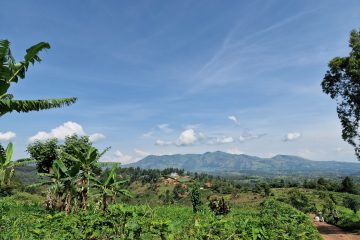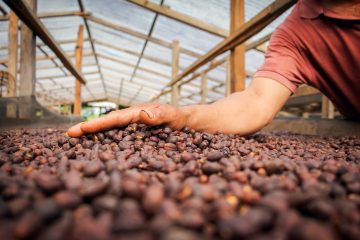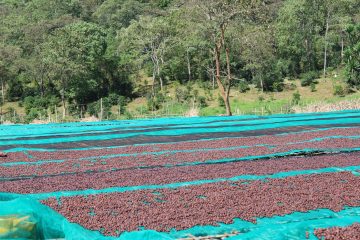We are currently getting in a good number of different micro lots from the Caballero family in La Paz, Honduras. They have a bunch of different small farms like El Puente, Campo, Francisca, Arcadio, Matilda, and Pantanal, among others. We bought 14 different lots from 9 of their many farms. All lots are processed slightly differently and come from various picking dates. We also did different trials on soaking and drying this year. This gives a large variation in tastes, something we find incredibly interesting. We will sell all the lots separately.
Don Fabio Caballero, who has been rewarded by the parliament in Honduras for his commitment to develop quality coffee in the country, inherited large areas of land from his father who was one of the pioneers of coffee cultivation in Honduras. After many years of poor profits, he decided to hand out land to his children, and especially to his daughter Marysabel Caballero and her husband Moises Herrera. They are currently overseeing more than 200 hectares of coffee and ensures that processing is done according to high standards.

At the farms they produce organic fertilizer made from cow and chicken manure mixed with pulp from coffee cherries and other organic material. This is used in addition to some artificial fertilizer to ensure that the coffee plants get the nutrients they need. The soil is analyzed annually to
provide proper nourishment to the coffee. All water used for processing is filtered before it is released into nature again.
There is no use of pesticides on the farms as fungus and other coffee diseases are controlled by controlling the amount of shade.
Oranges, avocados, flowers, bananas and other fruits are also grown at the farms, but mainly for the pickers to eat and to create biodiversity at the farms that ensures good growing conditions and shade for the coffee trees.

Don Fabio, Marysabel and Moises have always focused on quality, and they won 3rd prize at the annual SCAA “Coffee of the year” competition in 2010. They have also done well in the Cup of Excellence for many years, as one of the few producers from their area. As a result of this they have established close relationships with quality oriented roasters, and now with us at Nordic Approach.
One of the benefits of working with the Caballeros is that they have a good dialogue with their customers. They like to experiment with the coffee they produce. Everything they do at the farms is documented and they invest considerable time and resources both in new equipment and planting of new coffee varieties in order to improve the quality of the coffee.
The local pickers that are hired to harvest the coffee get paid more than is normal in the area because they are required to sort the berries during picking. Therefore the pickers are equipped with 2 sacks during picking. One bag for ripe coffee berries, the other is for immature and damaged coffee.

We have done some experiments this year with the processing and drying, so they vary, but the main process is the following: After de-pulping, the mucilage is removed with the use of an aqua pulper. Then the parchment is fermented for 12 hours before it is washed using African washing techniques which helps sorting floaters and undeveloped beans from the heavier, more developed coffee. After washing the beans have in most cases been soaked for 24 hours in running clean water. Then they are dried by various methods, but mainly from 10 to 14 days on cement patios.



